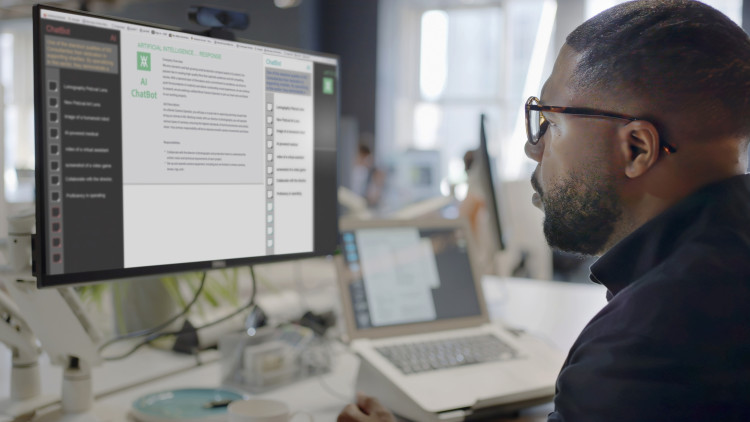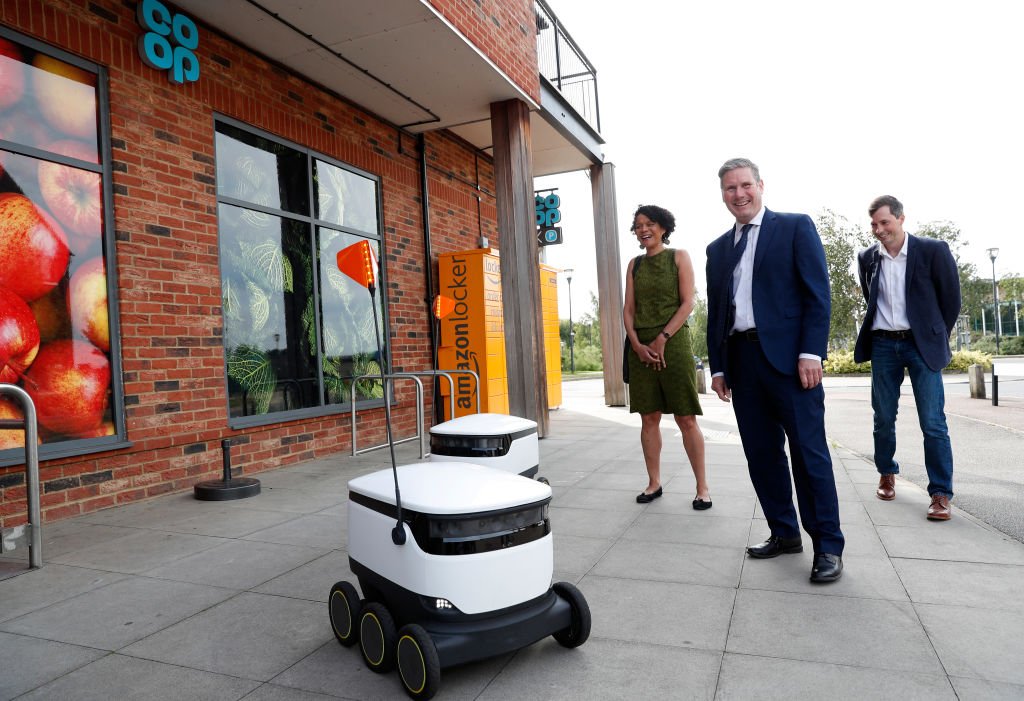With growing concern from some quarters regarding AI in the workplace, questions remain around how the Government will look to regulate its use and implications.
The Prime Minister has sought to position himself as a champion for AI, calling it an “opportunity” rather than something to fear. At the same time, Labour has promised far-reaching reforms of workers’ rights to keep pace with developments in AI and automated decision-making. Where the Government will ultimately land between prioritising economic growth and innovation on the one hand, and delivering on its commitments to voters (and the unions) on the other remains an open question – which will likely depend upon how businesses deploying AI are able to engage with and reassure the Government on its implications.
Support for AI as a workplace tool
Labour have been enthusiastic about AI’s potential to increase workplace productivity both in public services and the wider economy – it can sometimes seem as though this as a silver bullet for the UK’s growth and productivity woes. The techno-optimistic Tony Blair Institute were instrumental in developing Labour’s tech policy in opposition and remain an important influence throughout Government. While the rhetoric around the importance of investment in AI remains consistent, the reality is patchier – with important funding streams like the Edinburgh supercomputer falling victim to the famous fiscal rules.
Although businesses looking to roll out AI shouldn’t necessarily expect direct government funding to follow, Labour have committed to retaining R&D tax credits at current levels for firms looking to innovate. Additionally, upcoming legislation will focus only on those working to develop the most powerful AI models – meaning most businesses shouldn’t be overly inhibited in their adoption of AI for workplace efficiency.
Concerns over employee surveillance
Arguably a thornier issue than using AI to help with some paperwork, the current lack of specific regulation on the use of AI-enabled surveillance tools has led to growing disquiet among employees and trade unions – while businesses have defended its use, particularly amid the shift to hybrid and remote work.
Through the New Deal for Working People, Labour has promised that “at a minimum” it “will ensure that proposals to introduce surveillance technologies would be subject to consultation and negotiation”. However, like many of the trickier issues in employment law reform, this was not included on the face of the flagship Employment Rights Bill as it raced to its ‘first 100 days’ publication deadline last month – and the consultation on how negotiations with unions on the rollout of surveillance technology in the workplace should be conducted will not take place until post-2025.
This has the potential to create a policy vacuum in the interim, when calls for a tougher regulatory stance could grow. Senior Labour figures have made it clear that the next steps around consultation and regulation will depend upon businesses’ actions – with the threat of more stringent regulation acting as a sword of Damocles to encourage voluntary best practice that addresses the concerns of Labour and the unions.
Automated decision-making
Thornier still is the use of AI and algorithmic decision-making to make judgements on employee performance. The TUC published an AI Bill earlier this year calling for transparency, observability, and explainability to be at the core of any regulation around algorithmic decisions in the workplace.
Interestingly, the Government’s approach to automated decision-making has not deviated in the new Data (Use and Access) Bill from the previous administration. In a nutshell, this restricts decisions based solely on automated processing that produce adverse effects unless the individual has consented to their data being used in this way. It also sets out transparency requirements on data controllers relating to significant decisions based solely on automated processing. This empowers employees to contest any automated decisions, and requires data controllers to review and correct these decisions where needed.
However, despite Labour’s push for data adequacy, these measures don’t go as far as the EU’s GDPR - the Bill only establishes certain 'safeguards' for individuals subject to automated decision-making, whereas this is a 'right' for all types of personal data in the EU. In this week’s Second Reading debate, several Peers raised concerns around the outstanding risks this presents around biased and discriminatory outcomes in automated decision-making systems – and it remains to be seen how far Labour will look to hold the line on this divergence with the EU, given their broader aim of resetting relations.
Conclusion
The UK’s growth, productivity, and international competitiveness are among Starmer’s top priorities – and a flexible and innovative business environment will be key to his delivery against these objectives.
At the same time, employment rights reform has been a flagship policy of Labour’s for the last two years, and is among their most popular policies among the public. It’s worth also bearing in mind that while Labour has a strong majority and a new, more centrist cohort, union membership is not confined to the left of the party – one MP noted during a recent debate that there are now more GMB members within the parliamentary Labour Party than there are Tory MPs altogether. Meanwhile, newly elected Science and Tech Committee Chair Chi Onwurah has stated her intention to focus on bias and discrimination, which is likely to lead to greater scrutiny of algorithmic decision-making.
Businesses seeking legislative certainty over their use of AI as an employee management tool should watch the passage of the Data Bill and Employment Rights Bill closely to see how the Government’s position progresses. In order for Labour to resist any pressure to toughen their stance, businesses will need to engage with policymakers to provide continuous reassurance that their use of technology is in line with the Government’s wider ambitions to reset employment relations – while also making clear that innovation in AI as a workplace tool is central to achieving economic growth.








